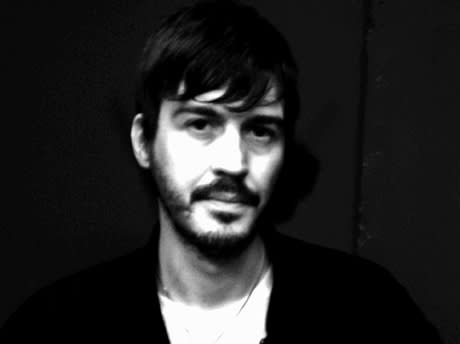Though Berlin-based Robi Insinna has been recording as Headman since 2000, he first began to gain international attention in 2004, when a series of singles under alternate alias Manhead led to him being name-checked as one to watch in then-trendy leftfield disco. In retrospect, Manhead was always the more focused of the two aliases: a cool and aloof retrospective on bare-bones disco. The Headman always had deeper ambitions and, with them, a less consistent track record. Catch Me, Headmans third album, follows this trend, alongside a few others. The leftfield disco and forlorn, Rapture-esque pose of previous releases have been quietly substituted with a more bolstered and tough electro edge that brings to mind Boyz Noize and the Ed Banger crew. Opening tracks "Catch Me If U Can and "Running Into Time strike an amicable balance between French touch muscularity and 80s-tinged electro pop but as the rest of the album wears on, one begins to notice that while Insinna may have an ear for replicating todays sounds, he has no real sense of how to advance them. And that, in the end, makes Catch Me a rather forgettable album after the initial spark of sheen production and fat bass fades away.
Theres a sense of past influences colliding with future aspirations on your tracks. What influences do you pull into the studio and what do you hope to add of yourself?
I try to have a nice balance of influences from the past and still sound new. The music has to be very organic. With modern tools, you automatically get a more modern sound but sometimes I still like to make it sound very retro. I dont want the sound to be too retro; I use computers and all that comes with them but I still try to record and process in a retro way as much as I can.
What makes Manhead different than Headman? I have completed a new Manhead track for the upcoming Relish Compilation II. Manhead has always had a different sound and work approach. Headman was always a virtual band, whereas Manhead was more studio and electronic sounding. Sometimes the lines between them cross a bit. The inspiration is also a bit different. Manhead is very disco, Balearic, cosmic, while Headman is more punk, disco funk wave electro or whatever you want to call it.
(Gomma)Theres a sense of past influences colliding with future aspirations on your tracks. What influences do you pull into the studio and what do you hope to add of yourself?
I try to have a nice balance of influences from the past and still sound new. The music has to be very organic. With modern tools, you automatically get a more modern sound but sometimes I still like to make it sound very retro. I dont want the sound to be too retro; I use computers and all that comes with them but I still try to record and process in a retro way as much as I can.
What makes Manhead different than Headman? I have completed a new Manhead track for the upcoming Relish Compilation II. Manhead has always had a different sound and work approach. Headman was always a virtual band, whereas Manhead was more studio and electronic sounding. Sometimes the lines between them cross a bit. The inspiration is also a bit different. Manhead is very disco, Balearic, cosmic, while Headman is more punk, disco funk wave electro or whatever you want to call it.
